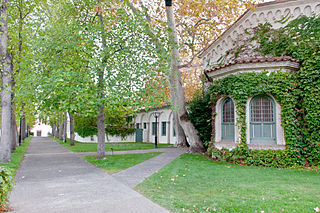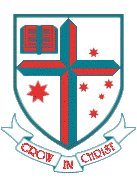External links
Coordinates: 19°40′55″S63°25′16″E / 19.682°S 63.421°E
Rodrigues College is a secondary school for both girls and boys. It is located in Port Mathurin, Rodrigues. It is the first ecumenical educational institution on the Indian Ocean.
Rodrigues College celebrated its 30th anniversary during the year 2004. It originated from the merger of the St. Louis and St. Barnabas Colleges in 1973. Rodrigues Island has a small population and during the early seventies it was difficult to run two colleges with few students and resources.
St. Louis College was a Roman Catholic school and St. Barnabas was administered by the Anglican diocese of Mauritius. During the month of August 1973, the then managers of both institutions met and decided on a merger as a final solution to save both schools.
Since that time, Rodrigues College has grown into a popular educational institution and has educated a large portion of the Rodriguan population.
The motto of the college is ‘Sapienta Et Fortitudo,’ meaning ‘Wisdom and Strength.' Students wear a green and white uniform along with the college badge.
Coordinates: 19°40′55″S63°25′16″E / 19.682°S 63.421°E

A college is an educational institution or a constituent part of one. A college may be a degree-awarding tertiary educational institution, a part of a collegiate or federal university, an institution offering vocational education, or a secondary school.

Mauritius, officially the Republic of Mauritius, is an island nation in the Indian Ocean about 2,000 kilometres (1,200 mi) off the southeast coast of the African continent, east of Madagascar. It includes the main island, as well as Rodrigues, Agaléga and St. Brandon. The islands of Mauritius and Rodrigues, along with nearby Réunion, are part of the Mascarene Islands. The capital and largest city, Port Louis, is located in Mauritius, where most of the population is concentrated. The country spans 2,040 square kilometres (790 sq mi) and has an exclusive economic zone covering 2.3 million square kilometres.

Port Louis is the capital city of Mauritius. It is mainly located in the Port Louis District, with a small western part in the Black River District. Port Louis is the country's economic, cultural and political centre, and most populous city. It is administered by the Municipal City Council of Port Louis. According to the 2012 census conducted by Statistics Mauritius, the population was 147,066.

Mixed-sex education, also known as mixed-gender education, co-education, or coeducation, is a system of education where males and females are educated together. Whereas single-sex education was more common up to the 19th century, mixed-sex education has since become standard in many cultures, particularly in Western countries. Single-sex education, however, remains prevalent in many Muslim countries. The relative merits of both systems have been the subject of debate.
Higher education in Mauritius includes colleges, universities and other technical institutions. Public university education has been free to students since 2019. The sector is managed by the Higher Education Commission (HEC) which has the responsibility for allocating public funds, and fostering, planning and coordinating the development of post-secondary education and training. Formerly the Tertiary Education Commission, in 2020 it was reformed into the HEC and a separate Quality Assurance Authority (QAA) for auditing of qualifications.

Women's colleges in higher education are undergraduate, bachelor's degree-granting institutions, often liberal arts colleges, whose student populations are composed exclusively or almost exclusively of women. Some women's colleges admit male students to their graduate schools or in smaller numbers to undergraduate programs, but all serve a primarily female student body.
Maryville University of St. Louis is a private university in Town and Country, Missouri. It was originally founded on April 6, 1872 by the Society of the Sacred Heart and offers more than 90 degrees at the undergraduate, graduate, and doctoral levels to students from 50 states and 47 countries. The school's name is derived from the shortening and altering of "Mary's Villa" when the school opened as an all women-school in the country outside of the order's original downtown St. Louis location in 1872. In 1961 it moved to suburban St. Louis and in 1968 began admitting men. Since 1972 the university has been governed by a board of trustees consisting mostly of members of the laity, although five of the trustees are always associated with the Society of the Sacred Heart. The school's athletic nickname is now the Saints.

Education in Hungary is predominantly public, run by the Ministry of Human Resources. Preschool kindergarten education is compulsory and provided for all children between three and six years old, after which school attendance is also compulsory until age of sixteen. Primary education usually lasts for eight years. Secondary education includes three traditional types of schools focused on different academic levels: the Gymnasium enrols the most gifted children and prepares students for university studies; the secondary vocational schools for intermediate students lasts four years and the technical school prepares pupils for vocational education and the world of work. The system is partly flexible and bridges exist, graduates from a vocational school can achieve a two years program to have access to vocational higher education for instance. The Trends in International Mathematics and Science Study (TIMSS) rated 13–14-year-old pupils in Hungary among the best in the world for maths and science.

The Royal College Curepipe, located in the centre of the town of Curepipe, Mauritius, is a state high school. RCC is widely referenced as one of the best all-boys high school in Mauritius. The school has high admissions standards, and is known for producing a high number of ‘laureates’.

St Vincent College is a co-educational sixth form (16-18) college located in Gosport, Hampshire, England. The majority of students come from the surrounding towns including Gosport, Fareham, Stubbington and Winchester. The nearby Gosport Ferry link with Portsmouth also allows students from that city to attend. The college has around 1,200 full-time students; it also caters for older "Access" students.

Chisholm Catholic College is a Private Catholic high school situated approximately 6 kilometres (3.7 mi) northeast of the Central Business District of Perth, Western Australia in the suburb of Bedford. The College provides education for approximately 2,021 students.

The Royal College Port Louis (RCPL) is an academy in Cassis, Mauritius. It is regarded as one of the most prestigious secondary schools in Mauritius. Originally founded in 1799 during the French colonial period, the first stone of the school's current building at Cassis was laid by Princess Margaret during her first visit to Mauritius in 1956.

Education in Mauritius is managed by the Ministry of Education & Human Resources, which controls the development and administration of state schools funded by government, but also has an advisory and supervisory role in respect of private schools. The Tertiary education is maintained by the Ministry of Tertiary Education, Science, Research and Technology. The government of Mauritius provides free education to its citizens from pre-primary to tertiary levels. Since July 2005, the government also introduced free transport for all students. Schooling is compulsory up to the age of 16. Mauritian students consistently rank top in the world each year for the Cambridge International O Level, International A and AS level examinations.
The D.A.V. College Managing Committee, familiarly known as DAVCMC, is a non-governmental educational organisation in India and overseas with over 900 schools. 75 colleges and a university. It is based on the ideals of Maharishi Dayanand Saraswati. Full Form of DAV is Dayanand Anglo Vedic. The Dayanand Anglo-Vedic education system also comprises colleges offering graduate and post-graduate degrees in areas of study all over India.
The State of Kuwait, located at the head of the Persian Gulf, supports an educational policy that seeks to provide an opportunity to all children, irrespective of their social class, including children with special needs. Kuwait was ranked 63rd on the Human Development Index report for 2011 by the United Nations Development Programme, placing Kuwait above the regional average.

Dr Regis Chaperon State Secondary School is an all-boys' state owned school in Quatre Bornes, Belle Rose, Mauritius. It serves nearly 1000 students annually. The school was built with the main purpose of free education and was the first high school to provide free schooling as from its inauguration in 1978.

Christianity is the religion adhered to by 32.7 per cent of the population of Mauritius. Of these, 80.3 per cent are Roman Catholics. The Mauritian Creole and Franco-Mauritian ethnic groups are mostly Christian and significant parts of the Sino-Mauritian ethnic group are also mainly Christian. Mauritius got independence in 1968 and there was no state religion in Mauritius defined in the constitution. The religious organizations present at the time of independence, namely, Roman Catholic Church, Church of England, Presbyterian Church, Seventh-day Adventist, Hindus and Muslims are recognized by parliamentary decree.
The Mico Foundation is a registered company under the Companies’ Act of Jamaica, with registered offices at 1A Marescaux Road. A twelve (12) member Board of Directors governs The Mico Foundation with the President of the University College as Managing Director.
Luc Rex Victor DonatGOSK was the fourteenth Anglican Bishop of Mauritius, succeeding in 1984 the Most Revd. Trevor Huddleston. Earlier on, in 1967, Donat became the first Mauritian Warden of Saint Andrew's School, the only Anglican secondary school of the country. He had been a pupil of the school from 1948 to 1954 and also a member of the teaching staff of the school since 1961.